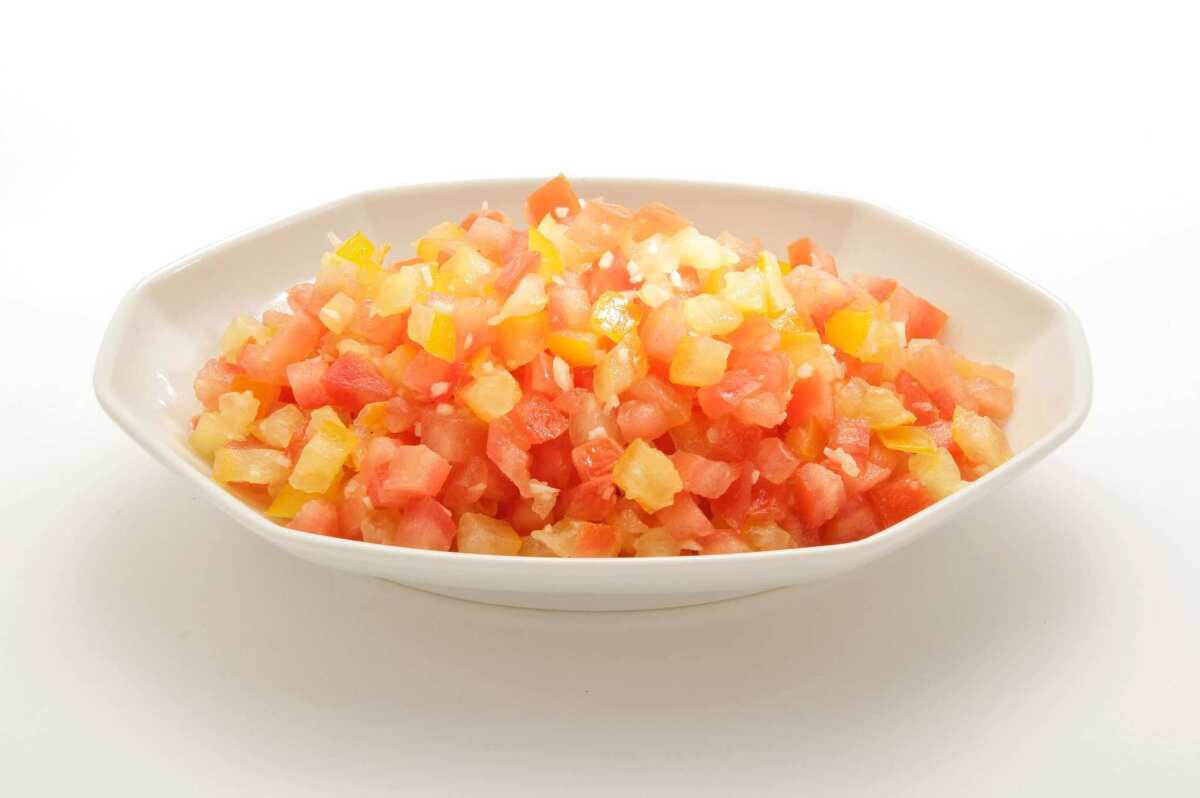Bruschetta, Italy’s elemental soul food

- Share via
On that first trip to Italy years ago, I talked to everybody, if only to practice my Italian. Shy in English, I was more gregarious in Italian. I had come with Venetian friends, six of us piled into a tiny Fiat, careening down the autostrada, stopping every half hour for an espresso, six hours to Sorano in southern Tuscany, where my friend Chicco had bought a tiny two-room stone house.
In the morning, whoever was first up made coffee in the Bialetti Moka Express, which is the way everybody makes it in Italy. No Mr. Coffee or fancy espresso machines: great espresso is available at cafes on every street corner. Why make it yourself? Coffee made in the Moka is typically short, which is to say you get about a half inch of thick, almost syrupy coffee at the bottom of the cup. Well, I hadn’t yet weaned myself off an American-sized mug of coffee. I needed more to wake up.
So I went out in search of more coffee or a cafe, but couldn’t find a one. I wandered around the ash-colored stone village, up and down the few steep cobbled lanes, passing old ladies knitting in front of their doorways, skittish cats and the occasional teen leaning, bored, against a scooter, the kind that makes the annoying lawnmower sound.
That’s when I came across the old man washing down plastic harvest baskets. When we had arrived the afternoon before, the whole town smelled like fermenting grapes. Everybody was busy making their personal wine for the year in the storage rooms beneath their houses. I had to ask the old gentleman whether his grapes were Sangiovese or something else.
Come, he said, I’ll give you a taste of the new wine, and he led me to his doorway around the corner. He whisked me in and quickly closed the door with a wink. “Busybodies! Gossips!” I wasn’t too worried. He didn’t look very dangerous.
Sit down, sit down, he said, shooing the cat off the chair. And poured ruby wine into a thick glass tumbler. It wasn’t very good, but I murmured appreciation anyway. (Maybe it got better with age?)
Then he took a folding knife from his pocket and cut two inch-thick slices of bread from a big crusty loaf on the sideboard. He proceeded to grill them in the fireplace until the bread had stiffened and the edges were slightly burnt. He cut a garlic clove in two and rubbed each half over the rough toast until the garlic disappeared into the crumb. I watched as he poured green gold olive oil from a tin olive oil dispenser until the toast was swimming in the oil. (I learned later that the olive oil tin was made in the next village over, Pitigliano.)
“Bruschetta!” I said, and took a bite that rocked my world. I had had it before, but never like this. There’s something so elemental, so ancient about this simple snack. It doesn’t sound like much — bread, garlic, olive oil — but it truly was food for the soul on that blustery fall morning.
The word “bruschetta” comes from “bruscare,” Roman dialect for “to char” or “to scrub,” depending on the context. In parts of Tuscany it is also called fett’unta — “oiled slice,” I later learned. Sometimes that means very oiled. When I visited an olive oil producer in Umbria that winter, he toasted the bread and then simply floated it on top of a vat of chartreuse-colored new oil, so bright it was almost iridescent, letting the bread soak up the olive oil like a sponge. I remember the oil dripping down my chin as I ate it.
After a second bruschetta (which, if you don’t already know, is pronounced with a hard k, not “sh”), I was ready to leave. The old man motioned, “Wait!” He cracked the door just enough to stick out his head, theatrically looked both ways, then signaled that the coast was clear. I scooted out the door and headed nonchalantly down the lane toward Chicco’s, where I commandeered the stovetop espresso pot and made myself another pot of coffee.
More to Read
Eat your way across L.A.
Get our weekly Tasting Notes newsletter for reviews, news and more.
You may occasionally receive promotional content from the Los Angeles Times.







